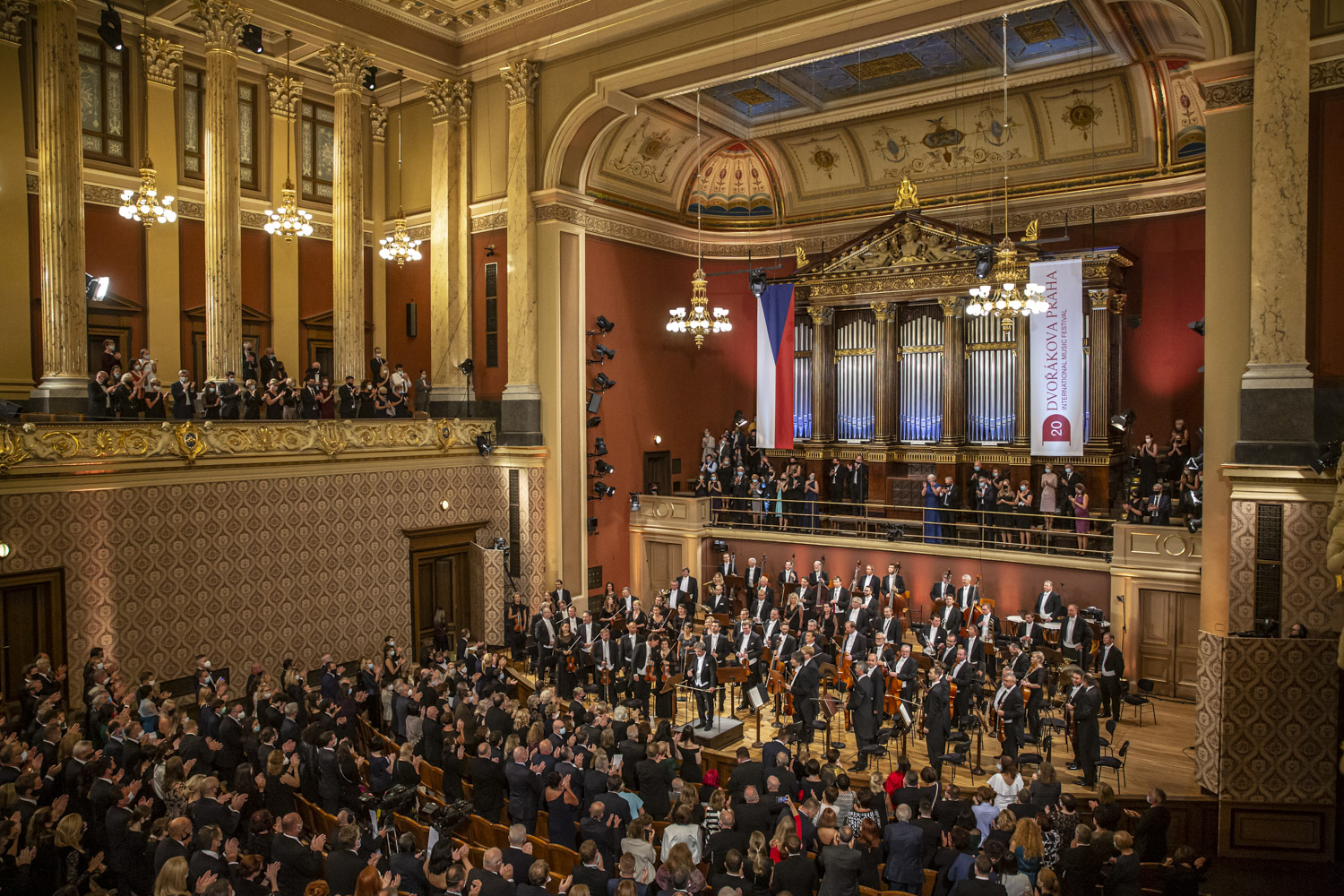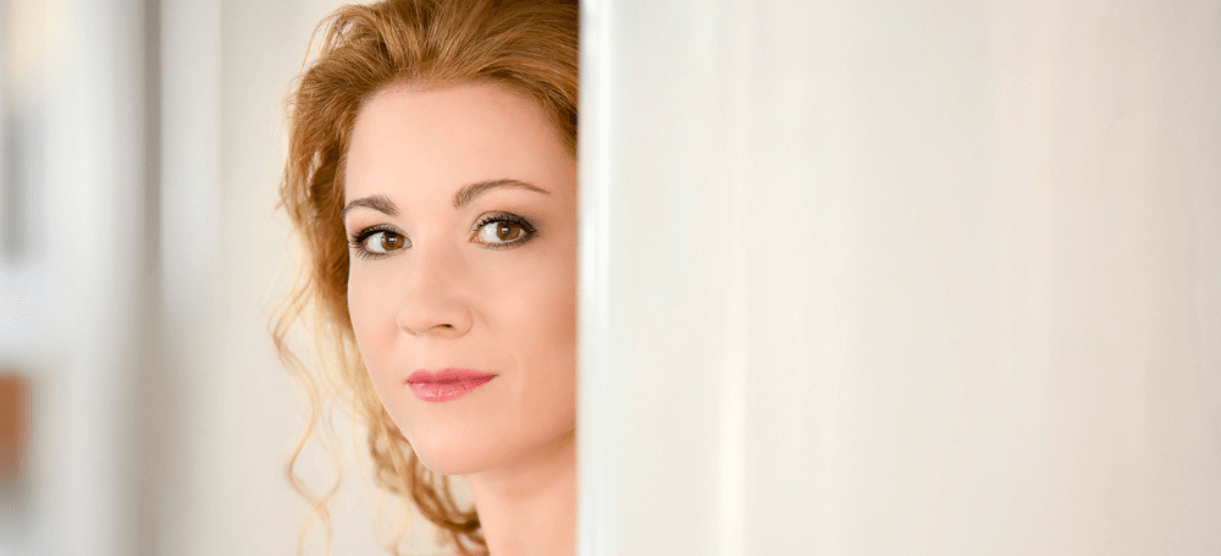
Antonín Dvořák: Silent Woods, Op. 68
Antonín Dvořák: Rondo, Op. 94
Bohuslav Martinů: Mirandolina – Saltarello
Bohuslav Martinů: Mirandolina – Mirandolina’s aria
Karel Kovařovic: The Dogheads – Lomikar’s aria
Zdeněk Fibich: Šárka – Šárka’s aria “Vše ticho kolem”
Vítězslav Novák: Karlštejn – aria of Charles IV “Je-li nutno, pane Vévodo”
Leoš Janáček: Jenůfa – Jenůfa’s scene “Mamičko, mám těžkou hlavu”
Leoš Janáček: The Cunning Little Vixen – the Forester’s scene “Neříkal jsem to”
Bedřich Smetana: The Secret – overture
Bedřich Smetana: The Secret – Kalina’s aria “Jsem žebrák”
Bedřich Smetana: The Bartered Bride – Mařenka’s aria “Ach, jaký žal”
Bedřich Smetana: The Devil’s Wall – Vok’s aria “Jen jediná”
Vilém Blodek: In the Well – Intermezzo
Antonín Dvořák: Armida, op. 115 – Armida, Op. 115 –Armida’s aria “Za štíhlou gazelou”
Antonín Dvořák: The Jacobin, op. 84 – duet of Julie and Bohuš “My cizinou jsme bloudili”
Only through singing can we find solace, as embodied in The Jacobin, Antonín Dvořák’s opera in which he fused Czech culture with his love of music: on returning to their homeland, the main characters, husband and wife Bohuš and Julie, use their singing talents as evidence of their Czechness.
In this vein, real-world married couple Kateřina Kněžíková and Adam Plachetka will bring Dvořák’s vision to life in a series of arias from Czech operas. They both have extensive experience on stages both in this country and abroad, including the renowned festival in Glyndebourne in the UK and the Metropolitan Opera in the US. This time, they have picked arias from the Czech repertoire, including lesser-played pieces. We will hear the infamous Lamminger from Psohlavci (The Dogheads) composed by Karel Kovařovic, the mythological figure of Šárka – composer Zdeněk Fibich’s heroine from The Maidens’ War, and Dvořák’s passionate enchantress Armida. The “greatest Czech” Charles IV will also feature in an aria from the opera based on the play A Night at Karlstein. All of this will be complemented by the timeless operas of Bedřich Smetana and Leoš Janáček, culminating with Dvořák’s tribute to Czech musicality.
The National Theatre Orchestra ranks among the oldest orchestras in the Czech Republic. Its roots stretch back to the Provisional Theatre era (1862-1883), when the Karel Komzák ensemble became the official orchestra of the Provisional Theatre (The Royal State Czech Theatre in Prague) in 1865.
The formation of the orchestra was influenced by its first conductors Jan Nepomuk Mayr, who was followed by Bedřich Smetana and later Adolf Čech. The world-famous composer Antonín Dvořák also performed as a violist in the orchestra of the Provisional Theatre. Karel Kovařovic, composer and opera director of the National Theatre from 1900-1920, was the orchestra’s harpist. With the much larger National Theatre, which finally opened on 18 November 1883, the orchestra was expanded to include many other instrumentalists thanks to the then director of the National Theatre, František Adolf Šubert.
Prominent personalities leading the orchestra include opera directors and conductors Karel Kovařovic, Otakar Ostrčil, Václav Talich, Jaroslav Vogel, Otakar Jeremiáš, Zdeněk Chalabala, Jaroslav Krombholc, František Vajnar and Zdeněk Košler. The orchestra also worked closely with Richard Strauss, Karl Böhm, Charles Mackerras, Bohumil Gregor, Jiří Kout, Jiří Bělohlávek, John Fiore, and from the youngest generation of Czech conductors Tomáš Hanus, Tomáš Netopil and Jakub Hrůša.
The orchestra has performed world premieres of operas by Bedřich Smetana (and his symphonic poem Má vlast), Antonín Dvořák (as well as his cantatas Stabat Mater, Symphonies No 4 and 8, overtures Carnival, In Nature’s Realm and Othello, Slavic Dances etc.), operas by Zdeněk Fibich, Leoš Janáček (The Excursions of Mr. Brouček to the Moon and to the 15th Century) and Bohuslav Martinů (Juliette) and others. The orchestra was the first to perform Pyotr Ilyich Tchaikovsky's operas Eugen Onegin and The Queen of Spades outside of Russia, and Giuseppe Verdi’s Otello and Falstaff outside of Italy.
The orchestra performs at opera and ballet performances and concerts in the National Theatre and the Estates Theatre. During the tours of the National Theatre, the orchestra has performed not only in the Czech Republic (Prague Spring Festival, Smetana’s Litomyšl, etc.), but also in Germany, Italy, Spain, the Netherlands (The Holland Festival), Scotland (The Edinburgh Festival), Slovakia, Hungary, Poland, Russia and Japan. The orchestra has also recoded music with Czechoslovak and Czech Radio, Czechoslovak and Czech Television, and music publishing companies Esta, Supraphon and Deutsche Grammophon.
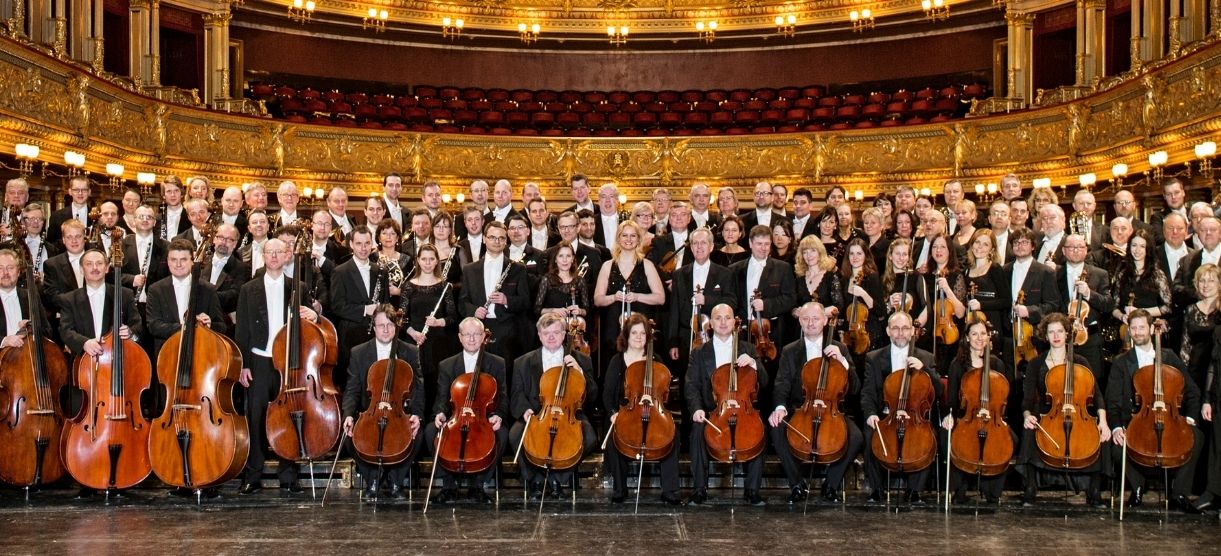
Robert Jindra graduated from the Prague Conservatory, where he studied classical singing and conducting.
Since 2001, he has been affiliated with the National Theatre in Prague, where he has prepared productions such as Mozart’s Così fan tutte, Smetana’s The Two Widows, and several operas by Leoš Janáček (The Cunning Little Vixen, From the House of the Dead), as well as a wide range of Czech and international repertoire, including Smetana’s The Secret and Libuše, Dvořák’s Rusalka, Janáček’s Káťa Kabanová and Jenůfa, Mozart’s Don Giovanni and The Marriage of Figaro, Bizet’s Carmen, Verdi’s Falstaff, and Wagner’s Lohengrin. He also led special concerts, including Mozart’s Birthday and the Czech Opera Gala.
During the 2013/2014 season, he served as Music Director of the National Theatre Opera in Prague. From February 2010 to November 2014, he was the Music Director of the National Moravian-Silesian Theatre Opera in Ostrava, where he conducted numerous opera premieres, including Smetana’s The Devil’s Wall, Dvořák’s Armida, Janáček’s Jenůfa, The Makropulos Affair, Káťa Kabanová, and The Excursions of Mr. Brouček, Wagner’s Lohengrin, Verdi’s Falstaff and La traviata, Massenet’s Werther, Catalani’s La Wally, Puccini’s La Bohème, and Hindemith’s Cardillac. He also led gala concerts dedicated to Verdi, Czech opera, and Puccini.
Internationally, he has collaborated with the Deutsche Oper am Rhein, conducted at the Norwegian National Opera in Oslo (Strauss’s Ariadne auf Naxos), and at the Slovak National Theatre in Bratislava (Halévy’s La Juive, Smetana’s The Bartered Bride). He has performed at prominent festivals such as the Prague Spring (Adam Plachetka Recital), Smetana’s Litomyšl, Viva Musica! Festival (concerts with Pavol Breslik and Adriana Kučerová, West Side Story/Candide), Janáček May (Adam Plachetka Gala Concert), Leoš Janáček Festival in Ostrava, and Košická hudobná jar.
Jindra has worked with numerous orchestras, including the Prague Chamber Philharmonic, Czech National Symphony Orchestra, Pilsen Philharmonic, Prague Symphony Orchestra, Janáček Philharmonic Ostrava, Czech Radio Symphony Orchestra, Moravian Philharmonic Olomouc, Bohuslav Martinů Philharmonic Zlín, Slovak Philharmonic, State Philharmonic Košice, Essen Philharmonic, and the Anhalt Philharmonic Orchestra in Dessau.
Between 2019 and 2021, he served as First Kapellmeister at the Aalto Musiktheater und Philharmonie Essen, where he conducted productions such as Reimann’s Medea, Wagner’s Ring an einem Abend, revivals of Puccini’s Tosca, Bizet’s Carmen, and various other operas and concerts.
In 2021, he made a highly acclaimed debut at the Bayerische Staatsoper Festival in Munich with Dvořák’s Rusalka. He conducted a gala concert celebrating Eva Urbanová’s career anniversary at the National Moravian-Silesian Theatre and led a concert performance of Dvořák’s Rusalka at the Jarmila Novotná Festival in Liteň.
From September 2021 to August 2024, he served as Chief Conductor of the State Philharmonic Košice. His other recent projects include productions of Verdi’s La traviata at the Slovak National Theatre, Weinberger’s Schwanda the Bagpiper in Graz, Janáček’s Jenůfa at the Norwegian National Opera in Oslo, The Cunning Little Vixen at the Bayerische Staatsoper, and, in 2023, one of the orchestra’s anniversary concerts at the Bayerische Staatsoper.
Since September 2022, he has held the position of Music Director of the National Theatre in Prague and Principal Guest Conductor of the Czech Radio Symphony Orchestra.
In the 2024/2025 season, Jindra made notable debuts at the Staatsoper Berlin Unter den Linden (Janáček’s The Makropulos Affair), Semperoper Dresden (Gounod’s Roméo et Juliette), and Oper Frankfurt (Janáček’s From the House of the Dead). In upcoming seasons, he will perform at prestigious venues, including the Vienna State Opera, Bregenz Festival, and Theater an der Wien.
Throughout his career, Jindra has collaborated with many distinguished artists, including Cornelia Beskow, Susan Bullock, Lise Davidsen, Ermonela Jaho, Jana Kurucová, Elena Maximova, Olga Peretyatko, Rosalind Plowright, Štěpánka Pučálková, Nadine Secunde, Elena Tsallagova, Eva-Maria Westbroek, Slávka Zámečníková, Arnold Bezuyen, Pavol Breslik, Pavel Černoch, Ferruccio Furlanetto, Peter Kellner, Tomasz Konieczny, Marek Kozák, Ambrogio Maestri, Štefan Margita, Adam Plachetka, Gustavo Porta, Roberto Saccà, Jiří Vodička, and Lukáš Vondráček.
source: www.robertjindra.com
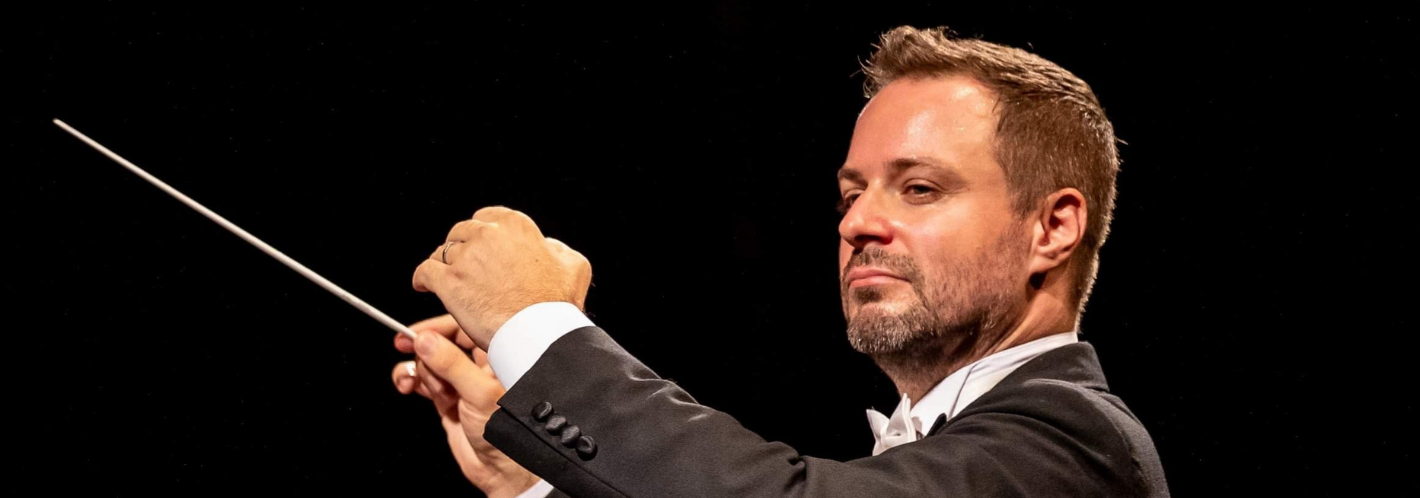
Kateřina Kněžíková is one of the most promising sopranos of her generation. In addition to her opera career, she increasingly focuses on concert repertoire, achieving success both in her native Czech Republic and abroad. Her core repertoire includes works by Antonín Dvořák, Bohuslav Martinů, Leoš Janáček, as well as the art song genre. She is the recipient of the Classic Prague Awards 2018 for Best Chamber Performance and the Thalia Award 2019 for her outstanding stage portrayal in Julietta or The Key to Dreams (B. Martinů) at the National Moravian-Silesian Theatre.
A graduate of the Prague Conservatory and the Academy of Performing Arts in Prague, Kněžíková has been a permanent member of the National Theatre Opera since 2006. Her current roles there include appearances in Rusalka, Così fan tutte, Carmen, Jenůfa, The Bartered Bride, and The Cunning Little Vixen.
She has performed at numerous festivals, including the Glyndebourne Opera Festival, Prague Spring International Music Festival, Dvořák Prague International Music Festival, and Smetana’s Litomyšl. Her collaborations with leading orchestras include the BBC Symphony Orchestra, Bamberg Symphony, Camerata Salzburg, Czech Philharmonic, Deutsches Symphonie-Orchester Berlin, London Philharmonic Orchestra, Mahler Chamber Orchestra, National Polish Radio Symphony Orchestra, ORF Vienna Radio Symphony Orchestra, Rotterdam Philharmonic Orchestra, Royal Liverpool Philharmonic Orchestra, Orchestre Philharmonique de Radio France, Orchestra dell’Accademia Nazionale di Santa Cecilia, Prague Radio Symphony Orchestra, Tokyo Symphony Orchestra, among others.
She has worked under the baton of many distinguished conductors, including Jiří Bělohlávek, Semyon Bychkov, Serge Baudo, Plácido Domingo, Asher Fisch, Manfred Honeck, Domingo Hindoyan, Jakub Hrůša, Oksana Lyniv, Tomáš Netopil, John Nelson, Petr Popelka, and Robin Ticciati.
In 2021, Kněžíková released her debut solo album “Phidylé” with Supraphon, which was named Editor’s Choice and listed among Gramophone's Best Classical Albums of 2021, also winning the BBC Music Magazine Award in the Vocal category. Her discography with Radioservis includes the albums “Fantasie” and “K2”. In September 2024, she released “Tag und Nacht” with Jakub Hrůša and the Bamberg Symphony under the Supraphon label.
In December 2024, she made a highly successful debut with the Czech Philharmonic at Carnegie Hall, conducted by Semyon Bychkov.
source: Agentura Camerata
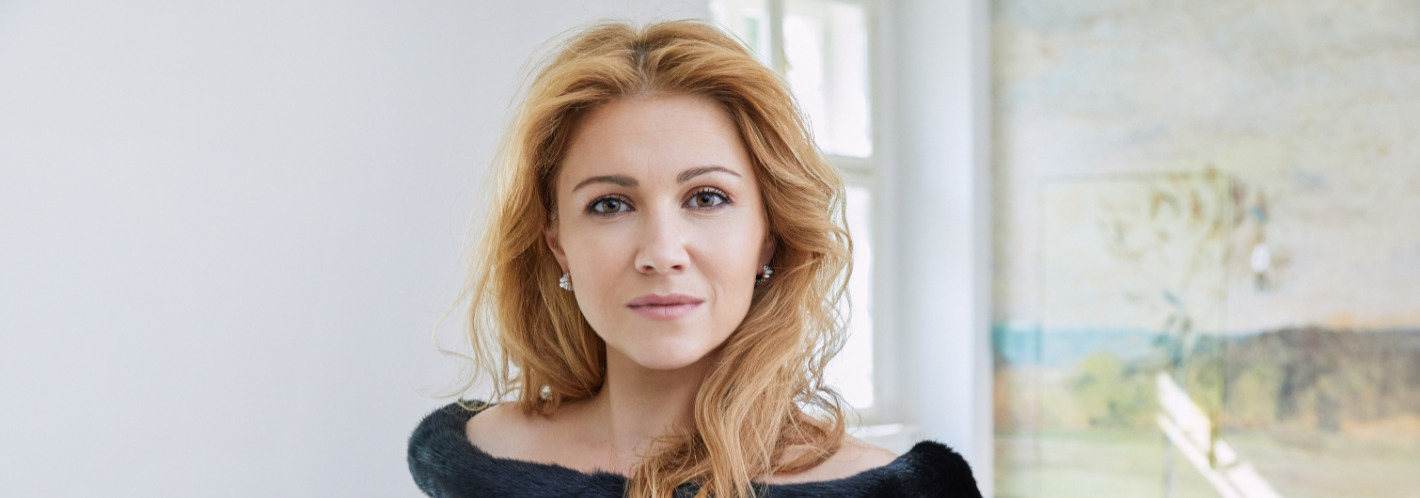
Adam Plachetka is one of the most successful bass-baritones of today, his engagements include appearances at the Salzburger Festspiele, Royal Opera House Covent Garden in London, Musikverein in Vienna, Glyndebourne Festival, Teatro alla Scala in Milan, Lyric Opera of Chicago or Metropolitan Opera in New York.
Adam Plachetka was educated at the conservatoire in his hometown of Prague. Following his debut at the Prague National Theatre in 2005, Adam has since returned as Don Giovanni, Figaro (Le nozze di Figaro), Nardo (La finta giradiniera), Argante (Rinaldo), Guglielmo (Così fan tutte) and many more.
In September 2010 Adam became a member of the Ensemble at the Wiener Staatsoper and made his debut as Schaunard (La bohéme). Since then, he has performed many other roles including Melisso (Alcina), Don Giovanni, Dulcamara (L'elisir d'amore), Figaro (Le nozze di Figaro, Il barbiere di Siviglia), Guglielmo, Publio (La clemenza di Tito), Mustafà (L'Italiana in Algeri), Alidoro (La Cenerentola), Conte Almaviva (Le nozze di Figaro), Dottor Malatesta (Don Pasquale), Paolo Albiani (Simon Boccanegra) and Riccardo Forth (I Puritani).
Adam appears regularly at the Meropolitan Opera, New York (Don Giovanni, L'elisir d'amore, Le nozze di Figaro, Così fan tutte) and at the Salzburger Festspiele (Benvenuto Cellini, Rusalka, Don Giovanni, Le nozze di Figaro, Die Zauberflöte).
Adam's other engagements include appearances at the Bayerische Staatsoper, Munich (La Calisto), Royal Opera House, London (Don Giovanni, L'elisir d'amore), Festpielhaus Baden-Baden (Così fan tutte, La clemenza di Tito), Glyndebourne Festival (Le nozze di Figaro), Carnegie Hall, New York (Salome), Deutsche Oper and Deutsche Staatsoper, Berlin (Don Giovanni, Le nozze di Figaro), Teatro alla Scala Milan (Così fan tutte), Lyric Opera Chicago (Le nozze di Figaro, Die Zauberflöte), Houston Grand Opera (Le nozze di Figaro) and at Opéra national de Paris (La Cenerentola).
In concert he has appeared at the Musikverein in Vienna, the Wigmore Hall in London, the Usher Hall in Edinburgh, the Herkulessaal in Munich, the Konzerthaus in Vienna, in Stockholm and Graz, and at the Municipal House and Rudolfinum in Prague. He has collaborated with the Chicago Symphony Orchestra, Radio-Symphonieorchester Wien, L'Orchestre philharmonique de Radio France, Symphonieorchester des Bayerischen Rundfunks, Symphony Orchestra of the Czech Radio, Scottish Chamber Orchestra, Czech Philharmonic, Wiener Symphoniker and with the Royal Stockholm Philharmonic Orchestra.
He has taken part in recordings for Arte, Arthaus Musik, Capriccio, Clasart Classics, Czech TV, Czech Radio, Deutsche Grammophon, Mezzo, Naxos, Nibiru, Orfeo, ORF, Radioservis, Servus TV, Supraphon and Unitel Classica.
Adam has performed under the baton of such conductors as Marco Armiliato, Daniel Barenboim, Mariss Jansons, Fabio Luisi, Riccardo Muti, Andris Nelsons, Yannick Nézet-Séguin, Christian Thielemann and Franz Welser-Möst.
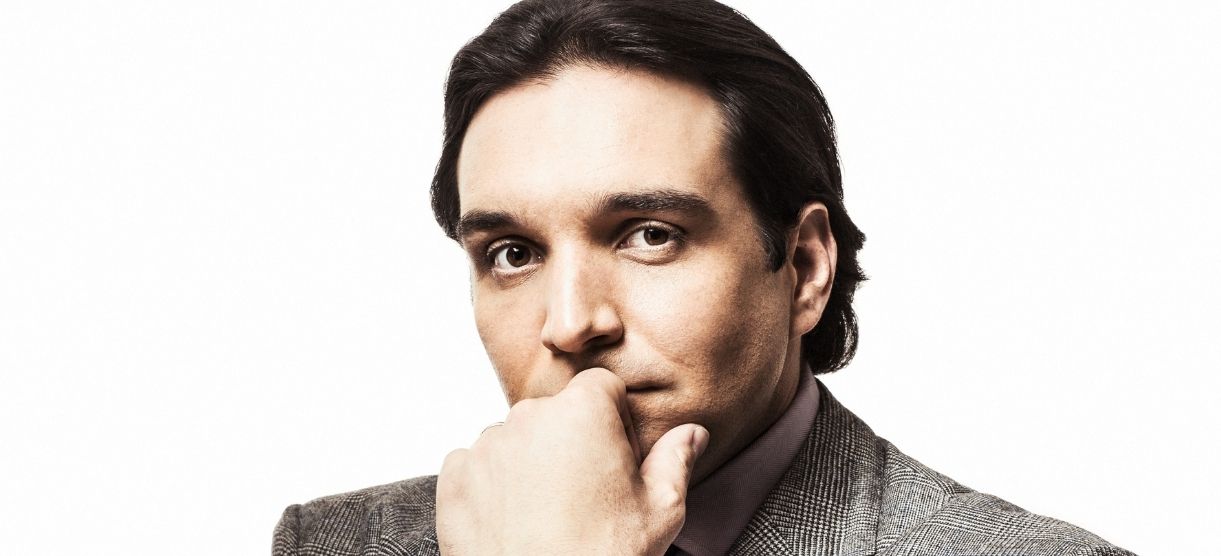
The Rudolfinum is one of the most important Neo-Renaissance edifices in the Czech Republic. In its conception as a multi-purpose cultural centre it was quite unique in Europe at the time of its construction. Based on a joint design by two outstanding Czech architects, Josef Zítek and Josef Schultz, a magnificent building was erected serving for concerts, as a gallery, and as a museum. The grand opening on 7 February 1885 was attended by Crown Prince Rudolph of Austria, in whose honour the structure was named. In 1896 the very first concert of the Czech Philharmonic Orchestra took place in the Rudolfinum's main concert hall, under the baton of the composer Antonín Dvořák whose name was later bestowed on the hall.
